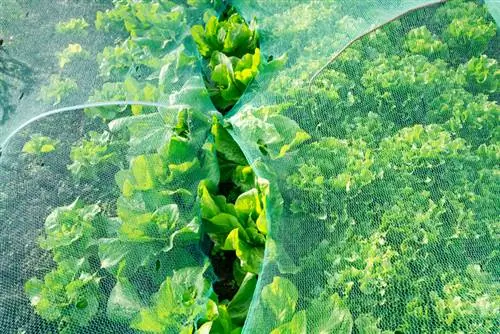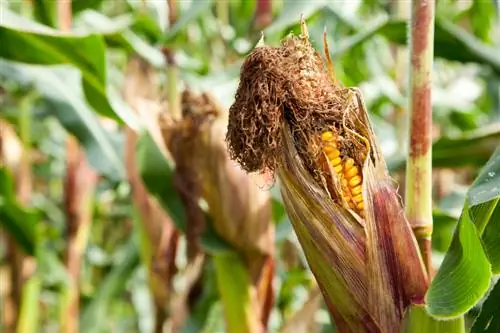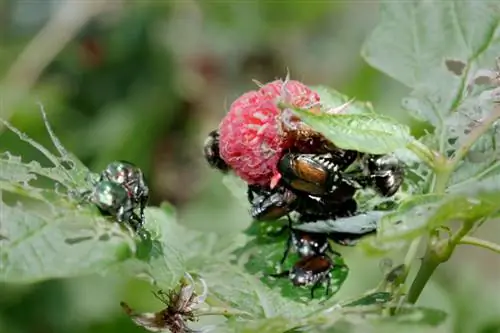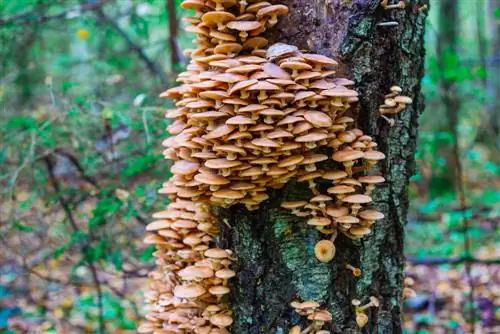- Author admin leonars@hobbygardeners.com.
- Public 2023-12-25 17:45.
- Last modified 2025-01-23 11:20.
Snails like to eat lettuce, but aphids also like to settle on the round heads of lettuce. Below you will find out what you can do against such pests and how to prevent them.
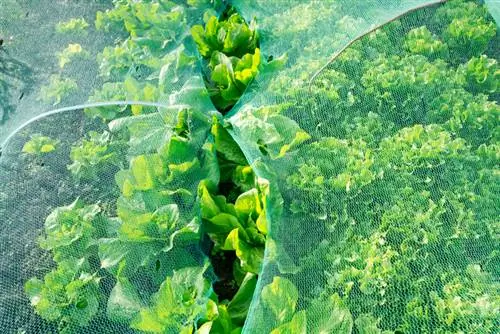
How do you protect lettuce from pests?
To protect lettuce from pests such as snails and aphids, you should ensure sufficient nutrients, ventilation and irrigation, set up snail fences, lay out strips of beneficial insects and choose resistant varieties such as “Dynamite”. If infested, home remedies such as nettle decoction or soft soap solutions can be used.
Prevent pests
Weakened lettuce, in particular, is a target for diseases and pests. Therefore, you should care for your lettuce as follows to prevent infestation:
- Ensure sufficient nutrients by enriching the soil with compost before sowing
- ensure adequate ventilation
- Avoid waterlogging
- water regularly
- sunny location
In addition, you can protect your lettuce from pest infestation as follows:
- Set up snail fences or ditches
- Settle beneficial insects by laying out strips of beneficial insects
- Choose resistant varieties such as Dynamite
Get rid of snails
The most effective way to combat snails is to collect them. If there is a severe snail infestation, it is advisable to subsequently set up snail fences. Some guides recommend using snail pellets as a pesticide. However, this is not only very brutal on the snails, but also extremely harmful to pets. Therefore, it is strongly advised not to use this chemical pest killer if you have pets or small children.
Identifying and fighting aphids
The quicker you detect an aphid infestation, the easier it is to combat the pests. Aphids can have very different colors: from black to green to reddish colored insects belong to the aphid family. But it's not just the little beasts that reveal an infestation. It also happens:
- Deformities on the leaves
- Drop formation
- Ant swarms
- Soot mold fungi
Aphids can often be effectively combated with simple home remedies. For example, the following is effective:
- Stinging nettle broth
- Milk-water-rapeseed oil mixture (2 liters of water to 500ml milk and three tablespoons of rapeseed oil)
- Soap solution (possibly with a tablespoon of spirit)
- Water with neem oil
Spray the infected lettuces every evening (!) with the appropriate agent for several days until no more pests can be seen. Make sure your lettuces are not exposed to direct sunlight immediately after treatment as this may react with the pest and burn the leaves.
Keep away from chemicals
Even if chemical manufacturers continue to stubbornly claim that their chemicals are not harmful to he alth, numerous independent (!) studies continually prove the opposite. Therefore, be sure to stay away from chemical pesticides. After all, you want to eat your salad without hesitation!

